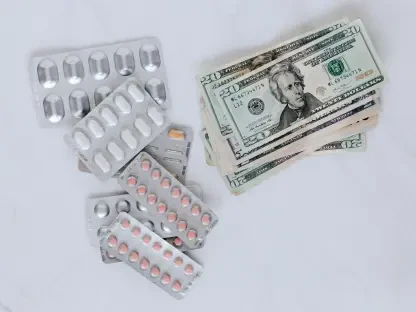In a significant court ruling that underscores the ongoing challenges in the fight against healthcare fraud, a Florida man, Jose Goyos, has been sentenced to 15 years in prison for his involvement in a massive healthcare fraud and money laundering scheme valued at $67 million. The intricate operation, which spanned from May 2020 to July 2021, primarily targeted Medicare beneficiaries, leading to substantial financial losses for the government and fraudulent gains for the perpetrators.
The Deceptive Telemarketing Operation
Orchestrating the “Doctor Chase” Division
Jose Goyos, 38, played a pivotal role as the leader of the “doctor chase” division, a critical component of the fraudulent telemarketing operation. The division was responsible for deceiving primary care physicians into ordering unnecessary genetic tests by falsely claiming they were requested and required by Medicare beneficiaries. Through a series of deceptive calls, Goyos and his team successfully manipulated physicians into submitting orders for these superfluous tests. Consequently, these false orders were used to bill Medicare, resulting in over $53 million in payments based on falsified claims.
The extent of the fraudulent activities was staggering, with Goyos and his co-conspirators submitting over $67 million in fraudulent claims within just over a year. This operation highlights the vulnerabilities in the Medicare system, where skilled fraudulent actors can exploit administrative gaps to siphon significant sums of money. Following a thorough investigation and a subsequent trial, Goyos was convicted in October 2023 on charges of conspiracy to commit wire fraud and money laundering.
Sentencing of Goyos’ Co-Conspirators
In addition to Goyos, nine other individuals involved in the conspiracy were also sentenced for their roles in this extensive fraud scheme. Their sentences varied, reflecting the degree of their participation and responsibility in the fraudulent activities. Among them, Daniel M. Carver received a sentence of 16 years and eight months, while Thomas Dougherty was handed a 14-year sentence. John Paul Gosney Jr. received seven years and 11 months. Galina Rozenberg and Michael Rozenberg were each sentenced to four years, Ethan Macier to three years and nine months, Louis “Gino” Carver to two years and eight months, Ashley Cigarroa to two years and six months, and Timothy Richardson to two years.
This array of sentences illustrates the seriousness with which the judicial system views healthcare fraud. The individuals’ involvement ranged from orchestrating and facilitating the fraud to various supporting roles that enabled the scheme’s success. Each sentence took into account the individual’s culpability and the impact of their actions on defrauded institutions and beneficiaries. These convictions serve as a stern reminder and warning to others contemplating similar fraudulent activities.
Investigative and Legal Proceedings
Role of Law Enforcement and Legal Bodies
The announcement of Goyos’ sentencing was made by high-ranking officials, including Principal Deputy Assistant Attorney General Nicole M. Argentieri and U.S. Attorney Markenzy Lapointe for the Southern District of Florida. FBI Special Agent in Charge Jeffrey B. Veltri and HHS-OIG Special Agent in Charge Stephen Mahmood also played instrumental roles in the investigation and prosecution of this case. The collaborative efforts of these agencies underlined the importance of inter-agency cooperation in tackling intricate fraud schemes.
The case was meticulously investigated by the FBI and the Department of Health and Human Services Office of Inspector General (HHS-OIG). Their diligence in gathering evidence, analyzing the fraudulent activities, and building a formidable case was pivotal to the successful prosecution of Goyos and his associates. The Department of Justice’s Fraud Section, in partnership with Assistant U.S. Attorneys for the Southern District of Florida, led the legal proceedings, ensuring that justice was served and substantial financial penalties were imposed through asset forfeiture.
Broader Implications and Future Actions
The case against Goyos is a vivid example of how intricate and damaging healthcare fraud can be, severely impacting not only the financial integrity of government programs but also the trust in the healthcare system itself. This ruling sends a strong message about the legal consequences of engaging in such fraudulent activities and underscores the necessity for heightened vigilance and rigorous enforcement to protect public funds and ensure the integrity of healthcare systems.









